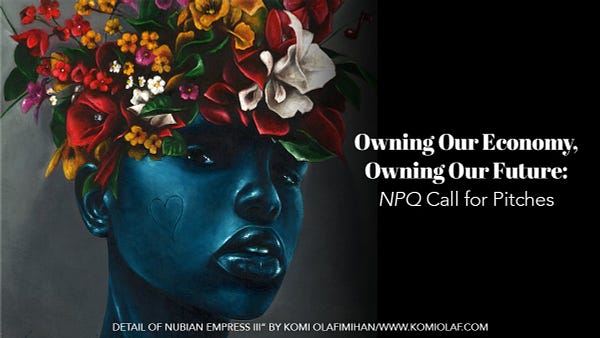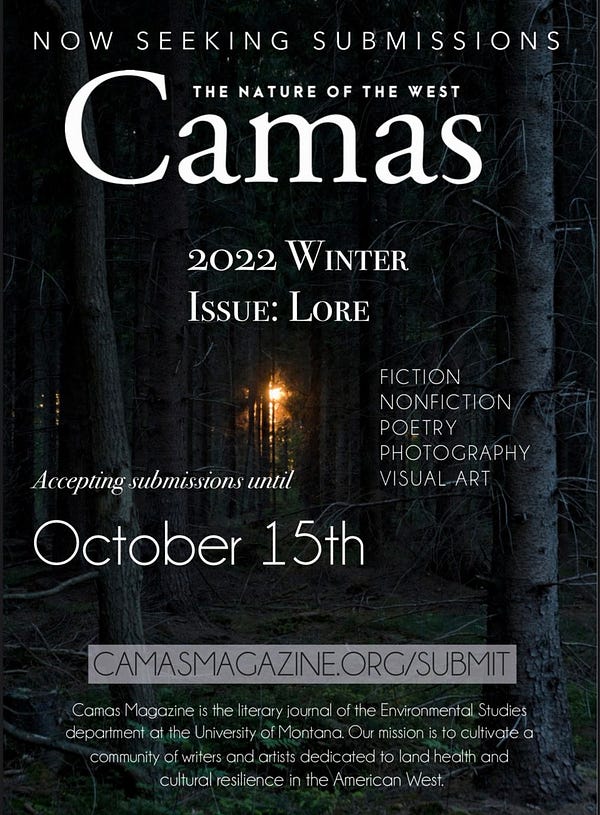Hi writer friend,
Welcome to One More Question. I’ve been a freelance writer (on and off) for over ten years. This is the space where I write about writing and share paid writing opportunities. It’s a newsletter for fellow writers, and I know I know, there are a lot of those. But here I don’t just tell you where to pitch and update you on the latest grants and fellowships. I share my thought processes and musings on the business of freelancing, finding inspiration, pursuing a creative life, and all the messy details that go into all that.
Subscriptions are 50% now through September 5. So if that all sounds good, drop your email and you can receive these every Wednesday for just $3/month.
Give me 1,000 versions
I’ve talked about a book idea on and off with friends and fellow writers for years. At times I’ve worked on it diligently, waking up in the dark morning hours to get words on the page before going to work. Other times I’ve let the document get lost in the depths of my Google Drive, untouched for months. I’ve started new versions and let those ones get lost, too. I’ve even made references to “a book-in-progress” and a “big creative project” here and elsewhere, thinking I would hold myself accountable by making it public.
One friend, with whom I regularly discuss the persistent worries that come with turning ideas into something tangible, has tried on more than one occasion to motivate me with fear.
“Someone else is going to write that book if you don’t,” she’s said.
And she was right. Someone did. Sort of.
A couple weeks ago I read the description of a book that will be coming out next year. And it reads shockingly similar to how I’ve described “my book.” Reading it gave me a sinking, prickly feeling. I read the description again and again. I preordered it. And then I felt sad, thinking about all of the time I’ve spent, failing to bring to life this idea that now exists in a form that is cohesive and complete and validated by a publisher and reviewers and a beautifully illustrated cover that people will see in book stores. Someone else made it happen.
Briefly, I felt as though I’d lost my chance. I didn’t have the discipline to stick with it, and someone else did. And good for them.
But here’s the thing: however similar a description of the topic this book covers, it’s not the book I would have written.
If you follow this newsletter, then you know I spend most of my time in the NICU these days, sitting next to my daughter’s incubator with my partner, comforting her during scary procedures, and trying to make sense of a new reality we’ve fallen into. People warned me about all types of hard things we’d go through as new parents. But no one told me that our daughter might have a rare congenital condition that would make her unable to swallow food—something that would prevent us from bringing her home for months. So, naturally, being a writer, I’ve gone searching for people who have written about experiences similar to ours. And I’ve found some beautiful essays about life in the NICU and parenting a sick baby.
The thing is, there aren’t enough. I want more. I want to read many different experiences and perspectives that feel similar to my own. I want to read all the little details that match this very specific environment we’ve come to know and ones that are curiously different. I want to nod and cry and feel curious and seen and understood from multiple angles, from all different writers. I want 1,000 stories about life in the NICU while I’m making sense of my own.
That hunger for more stories on this topic has made one thing palpably clear. If you care enough about a type of story or subject matter, then it’s never been covered to completion. That’s just not possible.
We always need more.
We need different versions of every single story. No one writer can cover a topic like any other writer would. No one can live or know what you’re living, but we can find each other in the overlaps.
In seeing one take on a topic I’ve been trying to write about, I’ve been forced to think more critically and more creatively about how my version is different—and therefore still necessary. That’s why all book proposals should include a “competitive titles” section, in which you review what similar pieces of work already exist and how yours will be different. The existence of similar stories forces us to refine our own.
When it comes to less personal stories, like reported features or investigative journalism, there is probably less room for many different writers to write many different versions. But someone else writing the thing you wanted to write can still open the door for looking deeper and finding a different angle. Perhaps you consider the same issue from a different geographical location or how the issue might impact a different group of people.
So write that thing. Even if it seems that maybe you’ve read it before. Even if it seems like it’s not the type of story that editors are looking for right now. Even if someone just published something with a title that sounds a whole lot like what yours might be titled if an editor worked with you on writing one. Consider how you might further develop your idea into something that is more specifically you.
We need whatever version you come up with, even if 1,000 different versions are out there already.
Now, let’s get to some opportunities for you to write them…
Education, Funds, and More
September 1 is the last day to apply for the 2022 National Science-Health-Environment Reporting Fellowship.
In this Personal Writing Workshop, taking place on September 7, founder and editor-in-chief of Aurelia Magazine, Kya Buller, will be exploring how to turn the things we've seen and experienced into impactful personal essays.
NPF’s Annual Awards are open for applications! Submit your work by Sept. 30, 2022.
So much excellent writing to inspire you in this list of the Online Journalism Awards winners.
Editors Who Want Your Pitches



















That’s all for today, friend.
Stay inspired,
Britany






